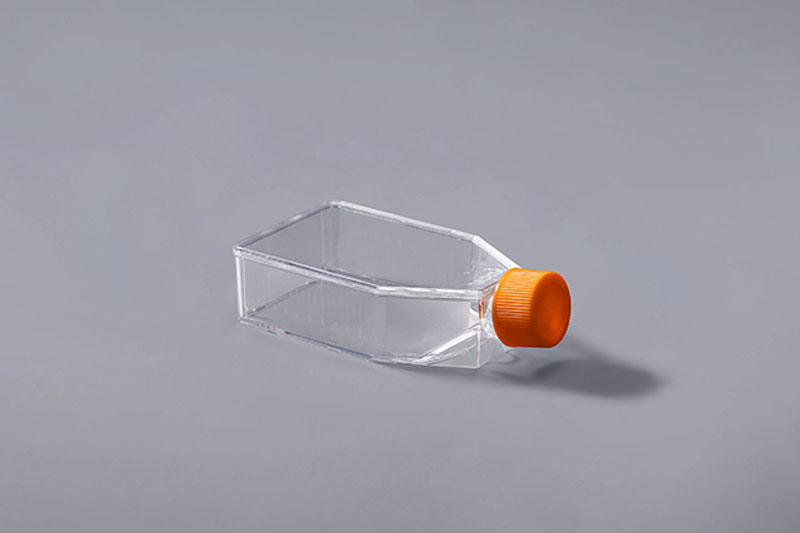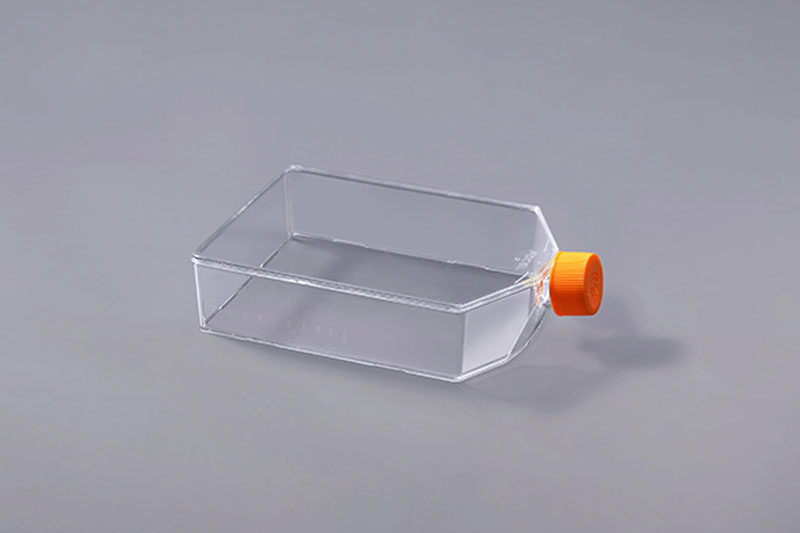Introduction of two different surfaces of cell culture flasks
When culturing cells, we often use cell culture flasks, whose specifications range from 75cm2 to 225cm2, to meet the needs of cell culture of different scales. Depending on how the cells are cultured, this vessel has two different surfaces: TC-treated and non-TC-treated.
Cells are divided into adherent cells and suspension cells according to the different culture methods. The growth of adherent cells must have a support surface that can be attached, and cells can grow on this surface by relying on the attachment factors secreted by themselves or provided in the medium. , breeding. Suspension cells do not require an attachable support and grow in suspension in the medium, such as lymphocytes.
FuDau T75 Cell Culture Flasks
The cell culture flask is made of polystyrene raw material. This material itself is hydrophobic, which is not conducive to the better adherence of cells. Therefore, it needs to be treated with TC on the surface to change its performance, so that the cells can better adhere to the wall. grow. There is no such requirement for suspension cells, but generally TC-treated containers are also suitable for suspension culture of cells.
FuDau T225 Cell Culture Flasks
In short, cell culture flasks treated with TC on the surface are more suitable for adherent culture of cells, and containers without TC treatment are suitable for suspension culture of cells. When choosing a cell culture container, we must first determine the cell culture method, and then select a suitable container, so as to ensure the good growth of the cells and the smooth progress of the experiment.


评论
发表评论